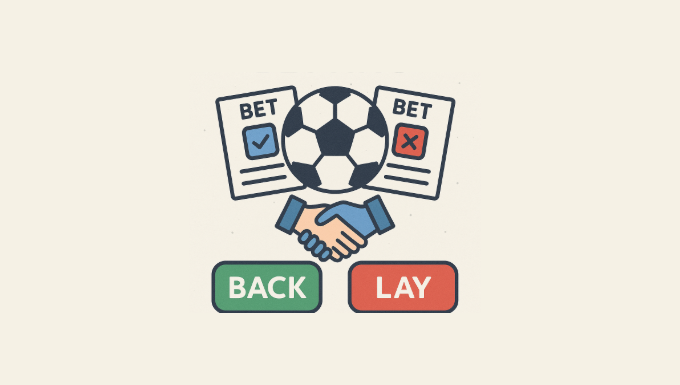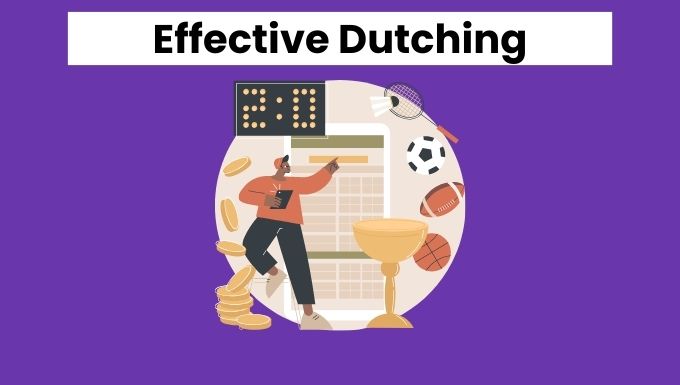Betting exchanges changed the way I look at betting. Instead of going up against a bookmaker who sets the odds and takes a cut from every bet, you’re betting against other people. That means better odds, more control, and the chance to play both sides of a market.
The big difference? You can back a bet like normal—picking a team or player to win—or you can lay a bet, meaning you’re taking the role of the bookmaker. If someone bets on a team to win and you lay the bet, you’re essentially betting that they won’t. If they lose or draw, you win the bet.

Because the odds are driven by the market, not a bookmaker, you often get better value. And if you know what you’re doing, you can trade bets before an event even finishes, locking in profits regardless of the outcome.
Of course, it’s not all free money. Betting exchanges charge commission on winnings, and liquidity, how much money is available in a market, can affect your options. But once you understand how it works, a betting exchange gives you opportunities you just don’t get with traditional bookies.
What Is Betting Exchanges And (How It Works)
A betting exchange is like a marketplace for bets—instead of wagering against a bookmaker, you bet against other people. It’s a game-changer because it often gives better odds and more flexibility than traditional betting.
Here’s how it works: Imagine you want to bet on a football match. On an exchange, you can either back a team (betting they’ll win) or lay a team (betting they won’t win). If you lay a bet, you’re essentially playing the role of the bookmaker; someone else backs it, and you pay out if they win.
The exchange makes money by taking a small commission on winning bets, but the real advantage is control. You can set your own odds, trade bets in-play (like cashing out early), or even hedge your positions to guarantee profit. It’s a bit like stock trading, but for sports!
I love it because it cuts out the bookies’ overround—those sneaky margins built into traditional odds. The downside? You need to understand the risks, especially when laying bets (your liability can be higher than a normal stake).
The Pros And Cons Of Using Betting Exchange
Using a betting exchange can be an exhilarating experience, but like anything, it has its pros and cons. Here’s my take on it:
Pros:
- Better Odds: One of the biggest advantages is that you often find better odds compared to traditional bookmakers. Since you’re betting against other punters, the competition can lead to more attractive prices.
- Control Over Bets: You have the freedom to set your own odds and decide which bets to accept. This level of control can be empowering and allows for more strategic betting.
- Back and Lay Betting: Betting exchanges enable you to both back (bet for) and lay (bet against) outcomes. This flexibility can open up various betting strategies, including trading your bets for profit.
- Transparency: You can see how much others are betting and at what odds, giving you invaluable insight into market trends and helping you make informed decisions.
Cons:
- Complexity: For beginners, the mechanics of a betting exchange can be daunting. Understanding how to lay a bet, for instance, takes time and practice.
- Liquidity Issues: Sometimes, especially on less popular events, you might struggle to match your bets against others, leading to potential frustration.
- Commission Fees: Betting exchanges typically charge a commission on your winnings, which can eat into your profits if you’re not careful.
Liquidity And Market Depth (why They Matter)
If you’ve ever tried placing a bet on a betting exchange and found that your stake just isn’t getting matched, you’ve run into a liquidity problem. Liquidity is basically how much money is available in the market; the more there is, the easier it is to place bets at good odds without moving the market too much.
Market depth takes this a step further as it shows you how much money is waiting at different odds levels. On exchanges like Betfair, you can see the full “order book,” which displays all the unmatched back and lay bets. A deep market means there’s plenty of money at tight spreads (small differences between back and lay prices), making it ideal for serious traders. But in a thin market? Good luck getting a big bet matched without drastically shifting the odds.
I’ve learned the hard way that low liquidity can kill a good strategy. Ever tried trading a niche tennis match or a lower-league football game? Sometimes, you’re stuck waiting for someone to take the other side of your bet or forced to accept worse odds. That’s why big events (Premier League, horse racing majors) are so much easier to trade.
Tips And Strategies For Betting Exchange
Tips and Strategies for Betting Exchanges
Betting exchanges can be incredibly rewarding if you know how to play them right. Over time, I’ve picked up a few key strategies that have helped me make smarter bets and reduce risks. Here’s what works for me:
- Understand Backing & Laying – The core of exchanges is that you can back (bet for) or lay (bet against) an outcome. Laying is powerful—you act as the bookie, but be aware of your liability (you could lose more than your stake).
- Shop for the Best Odds – Unlike fixed-odds bookies, exchanges often have better prices. Always compare before placing a bet—even small differences add up long-term.
- Trade Positions for Profit – Similar to trading stocks, you can lock in profits by backing early at high odds and laying later if the odds drop (or vice versa). This works great in-play.
- Hedge Your Bets – If your original bet is winning, consider laying it to guarantee profit regardless of the result. It’s safer than letting it ride.
- Watch for Commission Rates – Exchanges charge a small fee on net winnings. Factor this into your strategy—some specialize in low-commission markets.
- Start Small & Learn – Exchanges have a learning curve. Begin with small stakes, test strategies, and avoid emotional betting.
Common Mistakes To Avoid
Venturing into the world of betting exchanges can be exhilarating, but it’s also easy to make mistakes along the way. I’ve certainly stumbled a few times, and I learned valuable lessons from those experiences. Here are some common mistakes to avoid:
- Ignoring Research: One of the biggest blunders is not doing enough research on the events you’re betting on. I’ve jumped in blindly, only to regret it later when I realized I missed crucial stats or insights. Always gather information before placing a bet.
- Chasing Losses: After a losing streak, I’ve felt tempted to up the stakes to recover my losses quickly. This rarely ends well and often leads to even bigger losses. Instead, stay calm and stick to your strategy.
- Underestimating Liquidity: I once placed a bet on a lesser-known event, expecting a quick profit, only to find the market too shallow for my desired stake. Remember to check liquidity to ensure you can easily back or lay your bets.
- Not Taking Advantage of Trading Opportunities: Early in my betting journey, I didn’t fully grasp the trading aspect. I learned the hard way that I could have secured profits or minimized losses by laying my bets. Always keep an eye on the market as events progress.
- Disregarding Emotion: Betting can stir up emotions. I’ve made impulsive decisions based on excitement or frustration, leading to poor choices. Staying level-headed is essential for long-term success.
Betting exchanges have completely changed the way I look at sports betting. Unlike traditional bookmakers, they give you control—better odds, the ability to lay bets, and even trade positions like a market. Sure, there’s a learning curve, and yes, you can still lose money if you’re careless. But once you understand how they work, exchanges feel like a fairer, smarter way to bet.
The biggest advantage? You’re not fighting against the bookie’s profit margin; you’re just competing with other bettors. That means sharper odds and real opportunities if you do your research. Plus, features like trading in-play and setting your own odds add a whole new layer of strategy.
Of course, they’re not for everyone. You need discipline, a solid bankroll plan, and the patience to learn. But if you’re new and want to explore betting exchanges ,just start small and avoid the common pitfalls.


